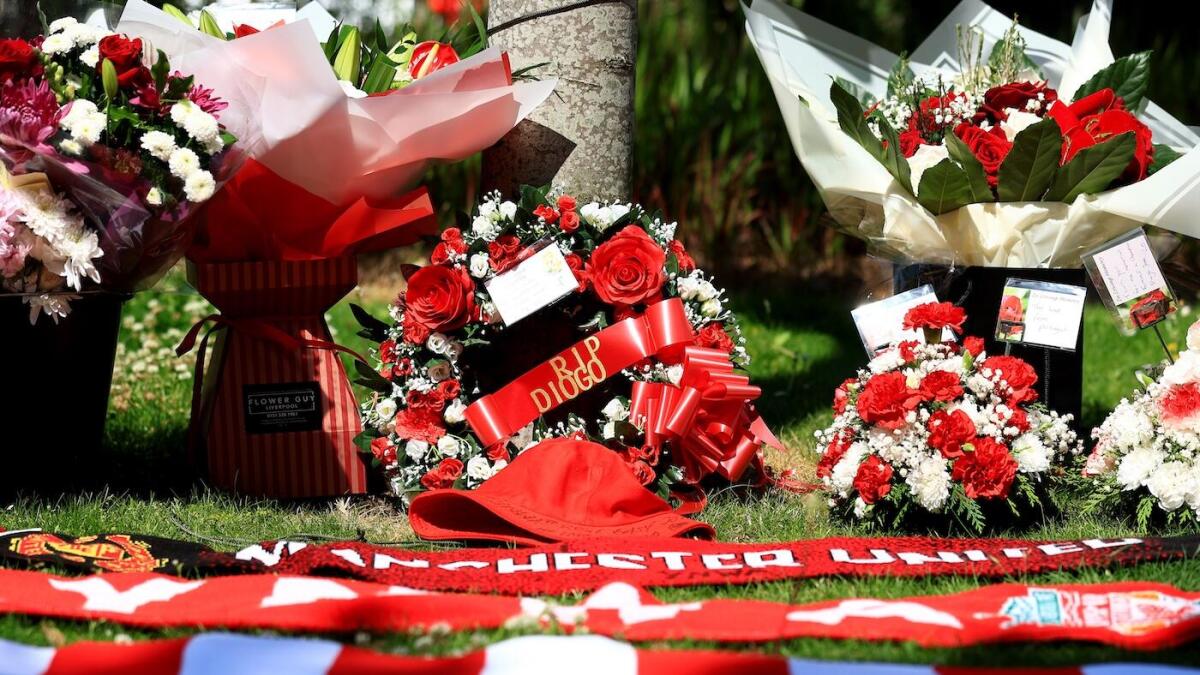The football world was struck by profound sorrow on July 3, 2025, when news broke of Diogo Jota’s untimely passing in a car accident alongside his brother, André Silva. At just 28 years old, Jota’s life was tragically cut short, leaving behind a legacy that transcends statistics and trophies. His death sent shockwaves through the sport, uniting fans, teammates, and rivals in collective mourning. Jota was more than a footballer; he was an embodiment of the beautiful game’s spirit, a player whose skill, passion, and infectious enthusiasm captivated audiences worldwide.
Jota’s journey to football stardom was one of perseverance and dedication. His professional career began in Portugal with Paços de Ferreira, but it was his move to Wolverhampton Wanderers in 2017 that truly launched him into the spotlight. During his three-year tenure at Wolves, Jota made 131 appearances, scoring 32 goals and providing 16 assists. His versatility, work ethic, and clinical finishing quickly made him a fan favorite. It was during this period that Jürgen Klopp, then-manager of Liverpool, took notice of Jota’s potential. In 2020, Klopp secured Jota’s transfer to Anfield, a move that would prove pivotal for both player and club.
At Liverpool, Jota seamlessly integrated into the team’s dynamic attacking system. He formed a formidable partnership with Mohamed Salah and Sadio Mané, contributing significantly to Liverpool’s success. His ability to play across the front line made him an invaluable asset to Klopp’s tactical flexibility. Whether deployed as a central striker, a wide forward, or even an attacking midfielder, Jota consistently delivered impactful performances. His tactical intelligence, combined with his technical skill, allowed him to adapt to different roles and exploit weaknesses in opposing defenses. Jota’s contributions were instrumental in Liverpool’s 2021-22 Premier League title victory, his first major trophy with the club.
Beyond his on-field exploits, Jota possessed a unique personality that endeared him to fans worldwide. He was known for his passion for eSports, even establishing his own team, Diogo Jota eSports. He regularly streamed matches and videos on Twitch, connecting with fans on a personal level. Jota’s love for gaming extended to his celebrations on the pitch. After scoring goals, he would often mimic using a Playstation controller, a gesture that became his signature. This playful celebration showcased his personality and further endeared him to fans, especially younger audiences who could relate to his passion for gaming.
Jota’s impact extended beyond the pitch. He was known for his humility, his dedication to his craft, and his genuine love for the game. He was a role model for aspiring footballers, demonstrating that with hard work and dedication, anything is possible. His last ever goal for Liverpool, remembered as a classic “Jota goal,” exemplified his ability to slalom through defenders and score with a world-class finish. This moment, captured forever in the annals of Liverpool history, serves as a testament to Jota’s skill and the joy he brought to the game.
Diogo Jota’s tragic death has left an irreplaceable void in the world of football. His contributions to Liverpool, Portugal, and the sport as a whole will never be forgotten. He was more than just a goalscorer; he was a symbol of passion, dedication, and the beautiful game’s unifying power. His spirit will live on in the hearts of fans and teammates, inspiring future generations of footballers to pursue their dreams with the same enthusiasm and determination that defined Diogo Jota’s career. The football world may have lost a shining star, but his legacy will continue to illuminate the path for those who follow in his footsteps.











